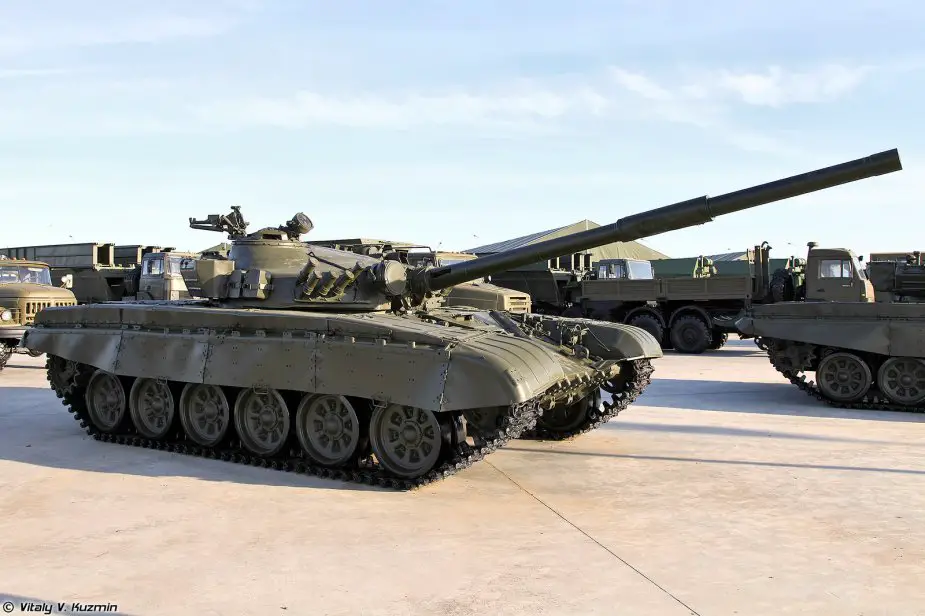Russia to expand on Uzbek arms market
Russia plans to expand on the arms market of Uzbekistan, the Izvestia daily writes.

T-72A (Picture source: Vitaly Kuzmin)
Uzbek defense appropriations comprised USD 1.4 bln last year and are likely to remain high and make the country attractive for arms trade which can be worth 6-7 bln dollars in a decade.
Uzbekistan inherited major Soviet stocks of ground, air force and air defense weapons and under the rule of President Islam Karimov looked for alternative arms supplies. Several contracts were signed with European, US and Chinese suppliers. HQ-9 antiaircraft weapon, an analog of S-300 was purchased from China which it created with the Russian assistance. However, the scope of procurement could not upgrade the army in general. The volume was insufficient and a strategic decision on arms procurement was necessary. Uzbekistan did not make the decision under Karimov. It was confirmed by the relationship between Tashkent and the CSTO. The situation began to change under the new government. In 2017, the first contracts were signed, in particular for the supply of Mi-35 helicopters.
Tashkent gives priority to the air force and air defense. Besides the Mi-35 deal scheduled for implementation in 2019-2020, Uzbekistan plans to buy radars and technical means to service upgraded Pechora-2M antiaircraft complexes. Sources in the arms trade told the Izvestia Tashkent may acquire modern short-range air defense.
Russia helps upgrade Uzbek air traffic control infrastructure. Tashkent wants to upgrade its P-37 radars to the level of Sopka-2 12A6. Armor procurement is less significant. In May 2019, Uzbekistan displayed Russian Typhoon-K 4x4 armored vehicles on KamAZ-53949 chassis which complemented previously procured US vehicles.
As for aircraft, Tashkent is likely to buy Yak-130 training jets which can also operate as light assault aircraft and fire precision weapons after an upgrade. Uzbekistan may also order an upgrade of available Su-25.
There are also "blank zones" where Russia cannot offer available products. They concern light airlifters (Uzbekistan and Kazakhstan are buying European C-295) and combat drones (procured in China).
The necessity to upgrade ground forces in conditions of potential local conflicts will demand major investment into armor. Russia may be requested to upgrade T-72 main battle tanks, Soviet-made infantry fighting vehicles and armored personnel carriers, as well as supply new light armor, the Izvestia said.
© Copyright 2019 TASS / Army Recognition Group SPRL. All rights reserved. This material may not be published, broadcast, rewritten or redistributed.


























